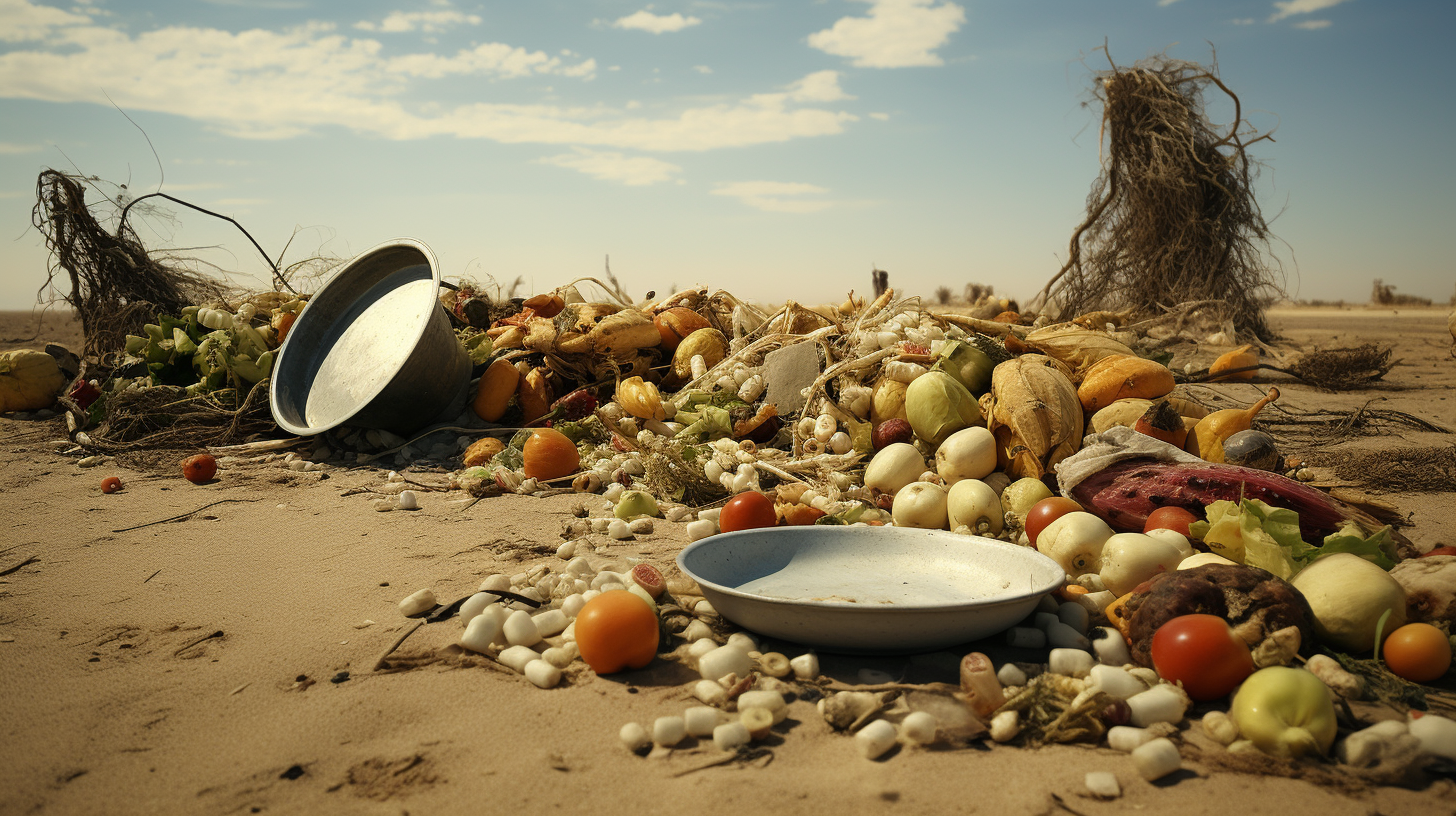A Tantalizing Illusion of Plenty Amidst the Ruins of Agriculture
As the autumnal sun casts its melancholic light over the sprawling expanses of dead farmland, the term ‘food security’ becomes a grim joke—a mocking whisper carried by the winds that now traverse through the eerie silence where the cacophony of abundant life once thrived. We live an existence haunted by the memories of Phantom Harvests, where the once verdant promise of agricultural bounty is nothing but a mirage on the scorched earth of our reality.
‘Phantom Harvests’, the term now widely used to describe the bizarre contradiction of increasing agricultural yields in reports, while pantry shelves in homes stand glaringly empty. The phenomenon owes its inception to an array of factors, most prominently the environmental catastrophes that have brought our world to its knees. A world at odds with the natural systems that once fed it, grappling with the idea that the technological crutches we leaned so heavily upon are buckling under their own fallibility.
The specter of food security is omnipresent, yet palpable sustenance remains a daydream for the multitude. In the midst of this turmoil, the agro-technological elites lay claim to legacies of innovation with genetically modified mega-crops and sprawling vertical farms dissecting the skyline. But these grandiose endeavors are mere drops in the cracked soil of our starving civilization—a civilization that wrestles with the irony of crops that thrive on paper but fail to materialize in famine-stricken communities.
Let us not forget the theological reverence with which we beheld the technological titans—the minuscule drones and hand-pollinators venerated as the saviors of our fruits and crops. Yet these ‘man-made bees’ proved to be no match for the ineffable intricacies of Mother Nature’s design. Our skies may be abuzz with their relentless hum, but the sad truth is that these machines brought forth a legacy not of salvation, but of despair, as detailed in prior reflections on our plight, such as ‘Haven No More – The Fallout of Failing Pollination Systems’.
Incongruent Reports and the Hunger of the Many
Indeed, the chasm between optimistic harvest forecasts and the gnawing hunger felt worldwide yawns ever wider. Reports teem with data of bumper crops and agricultural advancements, each promising a panacea that only ever appears to compound the suffering. This agony born of false hope is a relentless torment which we have documented in prior accounts like the sobering ‘Silent Fields – The Sunken Hymns of Agricultural Collapse’, weaving the narrative of our collective demise.
It seems we now dance to the same tune that led to the forewarning of aquatic farming’s enchanting yet ephemeral triumphs. We are a humanity clinging to the belief of a bountiful harvest, year after year, only to face the specter of our own creation: a global feast that exists merely as a phantasmal projection of our aching desires.
The irrevocable loss of natural pollinators stands as a stark monument to our folly. The beacons of biodiversity—bees, and butterflies—have dissipated into the annals of nostalgia, leaving in their wake a quiet so profound it claws at the soul. What remains is the mechanized echo of pollination, a process that bears the cold signature of our age: efficiency without wisdom, action without understanding.
Cultural Repercussions: Reflecting on these events paints a vivid picture of a society in Turmoil. Communities once celebrated harvest festivals with fervent joy, find themselves observing these traditions with a poignant sense of irony. The feasts that followed the harvests have become ghostly ceremonies, where people gather in somber reflection over the meager servings that stand testament to the ‘harvests’ that never were.
As our world lingers in this delusion of security, one wonders at the futility of harvesting promises instead of grain. What becomes of the future when the very idea of being fed is merely a notion, as though sustenance were a negotiable concept rather than an incontrovertible need?
The Endgame of Ingenuity
The very essence of human ingenuity is stretched to its furthest limits, source of both awe and sorrow. As our scientific prowess burgeons, it seems our capacity for foresight withers. We have spawned incredible feats to defy the death of agriculture, and yet, we must ask ourselves: to what end? If not to nourish and to sustain, then are we not simply architects of elaborate facades, behind which lies a barren wasteland that once teemed with life?
The irony is a bitter pill to swallow—a relentless reminder that our quest to outpace nature’s wisdom has led us down a path where we yearn for the very basics of existence. In a world that has known the sweet taste of variety and plenitude, to wrestle with the daily specter of hunger is a cruel fate indeed.
Therefore, we persist, delving deeper into the elusive quest for abundance. We meticulously sculpt our surroundings in a desperate bid to reclaim the luxuriance of times past. Yet, the ghostly images of harvests we once took for granted continue to haunt our collective consciousness, serving as a chilling prelude to a future that, should we fail to heed the past, continues to recede like a mirage on the horizon.
In the midst of this grand illusion, one question haunts us all: Are we too late to awaken from this dream? Or can we find a path through the mirage, towards a reconciliation with the Earth that continues to nurture us, even as we neglect her?
